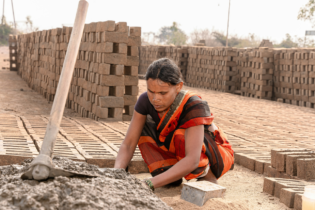
Patrick Roy Mnisi – Executive Director of MBSA, Neil Cloete – Immediate Past President of MBSA, Hon. Minister Jeff Radebe & Bonke Simelane – President MBSA
The South African construction industry came under the spotlight earlier this month as issues impacting the sector and the country at large were addressed at this year’s Master Builders South Africa Congress under the theme of ‘Building South Africa together’.
Opening the Congress was Minister in the Presidency for Planning, Performance, Monitoring, Evaluation and Administration, Hon. Minister Jeff Radebe. In his keynote address, titled ‘
Building the South African Economy Through Infrastructure Development’, the minister said: “My presence here today is a direct signal of our commitment as government and furthermore, speaks to the importance that we attach to your industry as a cog in a bigger wheel, that is the South African economy and how what you do, on various sites, helps us on delivering on our critical national objectives.”
He listed some of the achievements resulting from government’s investment of more than ZAR 1 billion per working day over the past year in infrastructure. The minister went on to elaborate on some on the infrastructure development opportunities available to the private sector both locally and on the rest of the continent.
Building infrastructure, building the economy
The topic was unpacked further during a panel discussion which comprised the Radebe; Themba Dladla, Acting Chief Executive Officer of Municipal Infrastructure Support Agent; Webster Mfebe, Chief Executive Officer of the South African Forum of Civil Engineering Contractors; Dr Adrian Saville, Chief Strategist at Citadel Asset Management and Bonke Simelane, the Master Builders SA President.
The general consensus among the panellists was that sustainable partnership was needed between national and local government and the building sector to not only achieve physical infrastructure but contribute to the attainment of national development goals such as unlocking economic growth, localisation, job creation and skills development.
Another key discussion point was the role of SMMEs in strengthening the industry and aiding job creation. The importance of SMMEs getting involved in the maintenance of public infrastructure projects as well as in supply chain provision at municipal level was highlighted.
In addition, the panel stressed the importance of the three tiers of government stepping up to manage projects and budgets to underpin the National Development Plan and Vision 2030. The issue of consequences for non-compliance by executives around 30 day payments was also raised, receiving a resounding applause from the audience.
Building sustainable partnerships
Providing a construction industry perspective on ‘
Rebuilding Sustainable Partnerships for a Prosperous South Africa’, Mfebe stressed the need for creating a conducive environment for investment by addressing internal wars within public institutions, repairing the regulatory environment where applicable, maintaining fiscal discipline as well as serving and maintaining the rule of law.
He also highlighted the necessity for public/private sector cooperation to be intensified, national and international public relations to be improved, ‘Brand SA’ to be protected, an inclusive economy to be aggressively promoted and state capture allegations to be decisively addressed.
When it comes to opportunities for boosting inter-Africa investment, he called for the liberalisation of trade, design of efficient trade policies, resuscitation of policies and action plans passed over the years, mainstreaming of regional trade policies into national policy documents country wide, removal of tariffs and quantitative restrictions on trade between African countries and improvement of customs and border control efficiencies.
Building on transformation
Tackling the topic of ‘
The Journey Towards a Transformed Construction Sector – Are We Getting There?’ was Thabo Masombuka, CEO of the Construction Sector Charter Council (CSCC). He said that transformation is about the integration of all races and all genders towards the future growth of the industry.
“It should be measured not only in terms of black ownership, but also the participation of women and young people. It should also be representative of the demographics of our society.” According to information from the Construction Industry Development Board, the levels of black, female and youth ownership are highest at grades one and two, but at the higher grades, these numbers decrease.
On addressing the specific empowerment challenges and peculiarities faced by the industry, Masombuka touched on the new draft sector code, which the CSCC hopes will be gazetted by 1 November 2016.
Following Masombuka’s presentation, Master Builders South Africa affirmed its commitment to transformation with the signing of the Transformation Declaration by all presidents of the Master Builders Associations from around the country.
Building a trustworthy sector
In his discussion on ‘
Combating Corruption in the Construction Industry’, Adv. Kevin Malunga, the Deputy Public Protector unpacked the forms of corruption in the industry and consequences of this which he said not only eats into profit but also leads to poor quality of the construction work which would cause accidents and endanger human life.
Strategies he suggested for combatting corruption in the industry included transparency, supporting the objectives of the National Development Plan, improving reporting and the protection of whistle-blowers, the development of a honest and ethical construction culture, strengthened professional institutions, adequate site supervision and physical audits as well as supervision of process and work during the project lifecycle.
The newly appointed Master Builders South Africa President, Bonke Simelane, brought the Congress to a close, stating: “We’d like to look back to this congress as one of the catalysts that propelled us into the future that we all desire.”
The 2017 and 112
th Master Builders South Africa Congress will be held in Cape Town.







